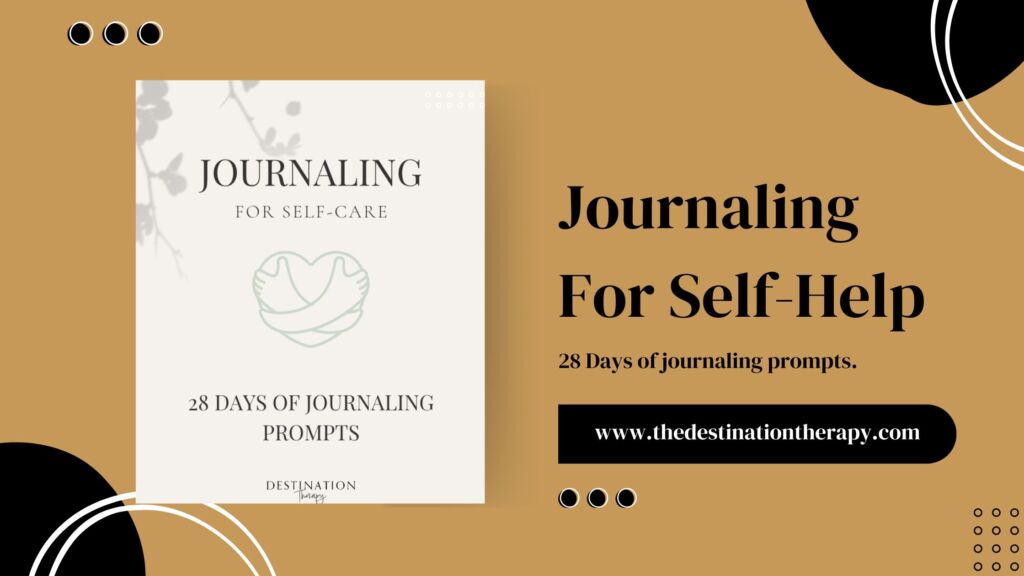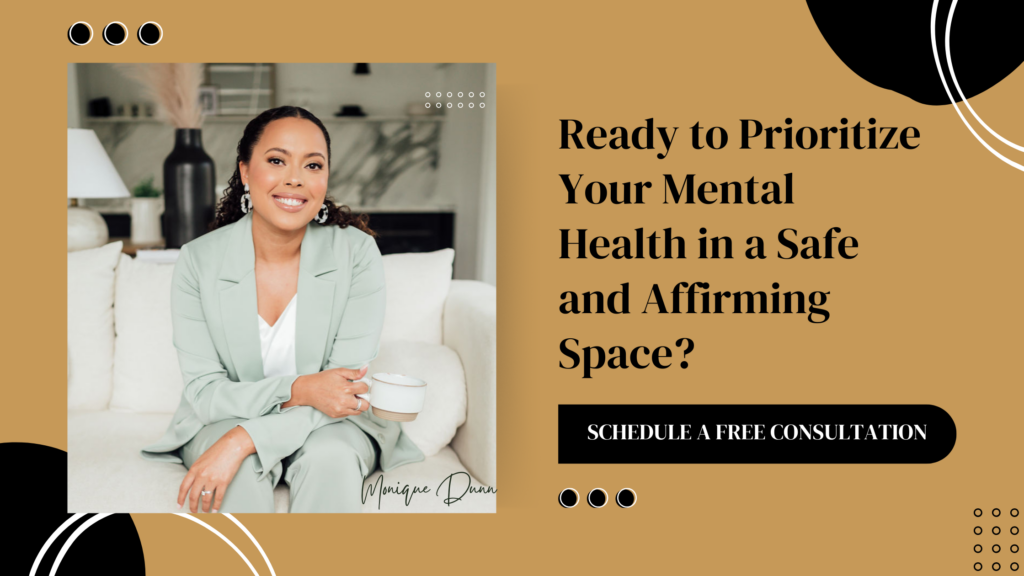Depression can feel very isolating, and for some, the idea of navigating it alone may seem like the only option. Maybe opening up feels too vulnerable, or maybe past experiences have made trusting others difficult. Whatever your reasons, it’s okay to ask yourself: Can I really manage this on my own?
The truth is, depression doesn’t come with a one-size-fits-all guidebook. But there are things you can consider before deciding to navigate it on your own. In this post, we’ll walk through seven key reflections to help you better understand your mental health needs, explore the risks and benefits of self-reliance, and offer insight into what support might look like for you.
Table of Contents
Understanding Depression: What It Is and Its Impact
Depression isn’t just “feeling sad” or going through a rough patch. It is a real and often overwhelming mental health condition that touches millions of lives. At its core, depression can feel like a heavy fog that makes even simple daily tasks feel exhausting. It often shows up as persistent sadness, loss of motivation, or a deep sense of hopelessness, but it can look different for everyone.
For some, it’s the physical weight of fatigue, changes in sleep, or a body that just doesn’t want to move. For others, it’s the mental exhaustion: racing thoughts, constant self-criticism, or a sense of disconnection from the world around them. These emotional, physical, and cognitive symptoms are all interconnected, and together they create different experiences that can be hard to put into words.
The ripple effects of depression go far beyond the person experiencing it. Relationships may feel strained. Work or school performance might take a hit. Social events that once felt fun may now seem impossible to face. And unfortunately, stigma still exists around mental health, which can make it even harder for people to speak up or ask for support.
If you’re thinking about facing depression on your own, it’s important to understand the full weight it can carry. Being informed about how depression operates can help you make more educated decisions about how to approach navigating it. Whether you decide to go it alone or reach out for support, knowing what you’re up against is the first step toward finding a way through.
A therapist who works specifically with women executives brings not only clinical insight but also deep empathy for the challenges you face and the resilience you already carry.
1) The Importance of Seeking Support
When you’re dealing with depression, reaching out can feel like the hardest thing in the world. But having support, whether from friends, family, or a mental health professional, can make all the difference in how you cope and heal. Sometimes, just knowing that someone sees you, hears you, and cares about what you’re going through can lift a bit of that emotional weight.
Support doesn’t always mean big gestures. It can be a friend who checks in with a quick text, a loved one who sits with you in silence, or a therapist who helps you sort through the thoughts in your head. These moments of connection help chip away at the isolation that depression often brings. They remind you that you’re not alone and that you matter.
Also, remember that asking for help isn’t a sign of weakness. It shows that you’re taking your mental health seriously and that you’re open to growth, even when it feels messy or uncomfortable. Support systems can offer fresh perspectives, gentle accountability, and coping tools you might not have discovered on your own. And sometimes, just being around someone who’s walked a similar path can spark a bit of hope.
Professional support, like therapy or counseling, can also provide a solid foundation for navigating depression. Mental health professionals bring not just expertise, but empathy, structure, and a safe space to process your experiences. They can help you get to the root of what’s going on and guide you toward strategies that work for you.
2) Evaluating Your Current Support System
Before deciding whether to navigate depression on your own, it’s worth taking an honest look at the kind of support you already have around you. Think of your support system as a safety net; it doesn’t have to be huge, but it should be strong enough to catch you when things get tough.
Start by asking yourself: Who in my life is actually there for me when I need them? Are they understanding and willing to listen without judgment? Reflect on past moments when you’ve opened up: did they respond with empathy, or did they brush your feelings aside? The people in your corner should make you feel heard, validated, and cared for.
It’s also about the quality of support, not just the number of people you can name. Sometimes a single, deeply supportive friend is more valuable than a dozen acquaintances who don’t truly “get you.” Support that helps you heal comes from people who listen without trying to “fix” you, who believe your experiences are real, and who encourage you without minimizing your struggles.
And don’t forget…professional support counts, too. Therapists, counselors, or even support groups (in person or online) can offer tools, strategies, and perspectives that friends and family may not be equipped to provide. These resources can fill in the gaps when your personal circle isn’t enough.
3) Recognizing Signs That You Might Need Help
When you’re trying to manage depression on your own, one of the most important things you can do is pay attention to the warning signs that you might need extra support. Sometimes, these signs creep in slowly; other times, they hit all at once.
Maybe you’ve noticed that the sadness you’re feeling just isn’t lifting, no matter what you try. Or the things you used to enjoy now feel flat and lifeless. Concentration might be harder, even for simple tasks. And if you’re also noticing changes in your sleep, appetite, or energy, whether that means sleeping way too much, barely sleeping at all, eating more, or losing your appetite, it could be your mind and body’s way of telling you something’s up.
Another big factor to consider is how long this has been going on and how intense it feels. If your symptoms have lasted weeks or months without improvement, it might be time to reach out for professional help. Chronic depression can take a serious toll, sometimes leading to thoughts of self-harm or suicide, which is why getting support sooner rather than later is so important!
It’s also worth checking in with yourself about your coping strategies. Are the things that used to help still working? Or do they feel like they’ve lost their spark? Depression can dull even our best tools, and that’s often a sign that it’s time to bring in some extra help.
4) The Risks of Facing Depression Alone
Choosing to face depression without any outside help is a decision that deserves serious thought, because while independence can be empowering, it can also come with many challenges. One of the biggest risks is how isolation can intensify symptoms. When you’re alone with your thoughts for too long, those negative thoughts can get louder and harder to ignore. Without people to check in on you or offer perspective, hopelessness can deepen, making navigating depression even harder.
Another concern is the slippery slope toward unhealthy coping. Without a therapist, friend, or other trusted guide, it’s easy to reach for quick fixes, like alcohol, drugs, or other numbing behaviors, to get temporary relief. The problem is, these don’t heal the root of the issue, and over time, they can make things much worse, both emotionally and physically.
There’s also the long game to think about. Recovery from depression often happens in small, gradual steps, and without support, it’s easier to lose momentum. Having someone else to encourage you, help you stay accountable, and celebrate the wins (no matter how small) can be the difference between moving forward and feeling stuck in the same place.
That’s not to say recovery is impossible on your own, but knowing the risks helps you make a more informed choice.
5) Strategies for Coping with Depression Solo
Going through depression without outside help can be tough, but it doesn’t mean you’re powerless. While everyone’s journey looks different, there are practical steps you can take to make the weight feel a little lighter and give yourself a sense of direction.
One of the most helpful things you can do is build a gentle routine. Depression often thrives in chaos or aimlessness, so having some structure, however simple, can bring stability. This might mean waking up at the same time each day, setting aside time for a short walk, or carving out a moment for something you genuinely enjoy. Small, consistent habits can create a sense of control when everything else feels unpredictable.
It’s also worth leaning into mindfulness and self-awareness. Try to regularly “check in” with yourself, notice what thoughts are circling, how your body feels, and where your emotions are sitting. Practices like meditation, deep breathing, or even simply pausing to watch your surroundings for a minute can help bring you back to the present when your mind feels stuck in the past or future. Journaling can be another powerful outlet, whether you’re venting, exploring your feelings, or tracking your progress over time.
Lastly, think of coping tools as a personal survival kit. Maybe yours includes creative outlets like painting or writing, time in nature, listening to music that lifts your mood, or practicing gentle stretches. Keep a list of these go-to activities handy, so when a low day hits, you don’t have to think too hard about what might help.
6) When to Consider Professional Help
Deciding to seek professional help for depression can feel like a big step, but it’s also one of the most empowering ones you can take. Sometimes, no matter how much effort we put into self-care or coping on our own, the weight of depression becomes too heavy to carry alone.
If you’ve been experiencing intense sadness, hopelessness, or thoughts of harming yourself, it’s important to reach out for help immediately. These are signs that your mind and body are under significant strain and need support beyond what you can provide yourself. The same is true if depression is making it hard to function on a day-to-day basis.
It’s also worth considering professional help if you’ve tried different self-help strategies but still feel stuck. Therapists, counselors, and psychiatrists bring tools and approaches you can’t always access on your own, from evidence-based therapies like cognitive-behavioral therapy (CBT) to medication that can help balance your brain chemistry.
And sometimes, it’s not about hitting a crisis point, it’s about realizing you feel overwhelmed and would benefit from having a safe, non-judgmental space to unpack your thoughts and feelings. Mental health professionals can help you create personalized coping strategies, guide you through challenges, and walk alongside you as you work toward healing.
7) Building a Personal Action Plan
When you’re living with depression, it’s easy to feel like you’re drifting without a sense of direction.. That’s where a personal action plan comes in; it’s your own roadmap to help guide you toward feeling better, one step at a time.
Start by thinking about what you’d like to work on. Maybe it’s getting more consistent sleep, quieting the cycle of negative thoughts, or finding ways to bring gentle movement back into your day. Whatever your goals are, make sure they’re realistic and bite-sized; you’re not trying to climb the whole mountain at once, just take the next step up the trail. Keep track of your progress, no matter how small, and celebrate the little wins.
It also helps to put together a “toolkit” of coping strategies that work for you. This could be anything from taking a short walk, practicing mindfulness, or making time for a hobby that brings you joy, to having mental health resources like hotlines, support groups, or a trusted therapist’s contact info ready when you need it. Knowing you have tools to lean on can make the hard moments feel a little more manageable.
Finally, try weaving your goals and coping strategies into a daily routine. Build in time for self-care, rest, and activities that help you feel grounded or connected. Your plan doesn’t have to be perfect…life changes, and your needs will too. Check in with yourself regularly and adjust as you go. Over time, these small, consistent steps can help you build resilience, reclaim a sense of control, and remind you that you can move forward, even if it’s one gentle step at a time.
Resources for Individuals Facing Depression
If you’re living with depression, it’s important to remember you’re not alone, and there are more resources out there than you might realize. Whether you need someone to talk to right now or you’re looking for ongoing support, there’s help available in many forms.
In-the-Moment Help
When things feel overwhelming, mental health hotlines and crisis centers can offer immediate, confidential, and non-judgmental support. You’ll be connected with trained professionals who can listen, help you navigate the moment, and point you toward helpful next steps.
- 988 Suicide and Crisis Lifeline (U.S.) – Call or text 988, or use 988lifeline.org for 24/7 free and confidential help.
- Crisis Text Line – Text HOME to 741741 (U.S.), 686868 (Canada), or 85258 (UK & Ireland) to connect with a trained crisis counselor via crisistextline.org.
Online Communities and Information
Sometimes, just knowing others understand what you’re going through can make all the difference. There are safe spaces online to connect with people who’ve been in your shoes, along with trustworthy websites that provide education, tools, and local resources.
- National Alliance on Mental Illness (NAMI) – Offers education, free support groups, and a HelpLine at 1-800-950-NAMI.
- Mental Health America (MHA) – Provides mental health screenings, information, and a searchable database of support services.
Therapy and Professional Support
Talking to a therapist or counselor can be a game-changer when it comes to navigating depression. They can offer a safe space to unpack your thoughts, teach coping skills, and provide evidence-based treatments. If cost is a concern, many clinics and organizations offer options at different price points..
Complementary Approaches
Traditional therapy isn’t the only path; many people find relief in approaches that work alongside it. Art therapy, yoga, and mindfulness-based stress reduction have been shown to ease symptoms and support overall well-being.
The key takeaway? You don’t have to figure it all out alone. Whether you need a compassionate ear for the night or a plan for the weeks ahead, there’s help and hope out there.
Conclusion: Embracing Hope and Healing
Choosing how to navigate depression, whether on your own or with support, isn’t a decision to take lightly. It’s a deeply personal choice, shaped by your experiences, your current circumstances, and your comfort level with vulnerability. There’s no shame in needing help, and there’s no shame in wanting to try to handle things yourself. What matters most is that you stay connected to your own needs, keep an open mind, and know when to reach out if things feel too heavy.
Depression can make the world feel small and dim, but it doesn’t erase the possibility of light. Healing often comes in small, steady steps, sometimes so gradual you don’t notice the change until you look back and realize you’re standing in a different place than before. Whether your path is supported by friends, guided by a therapist, or fueled by your own inner strength, every bit of progress counts!
Above all, remember this: you are not broken for feeling this way, and you are not alone in the struggle. Hope is not lost, even if it feels distant right now. With patience, compassion toward yourself, and the willingness to try again tomorrow, you can keep moving toward a version of life that feels more like your own.
We Are Here For You
Whether you’re battling anxiety, depression, perfectionism, or navigating relationship challenges, Destination Therapy empowers you to achieve the peace, ease, and fulfillment you deserve.
We offer convenient telehealth across Texas, Massachusetts, California, Florida, Utah, and New York.




